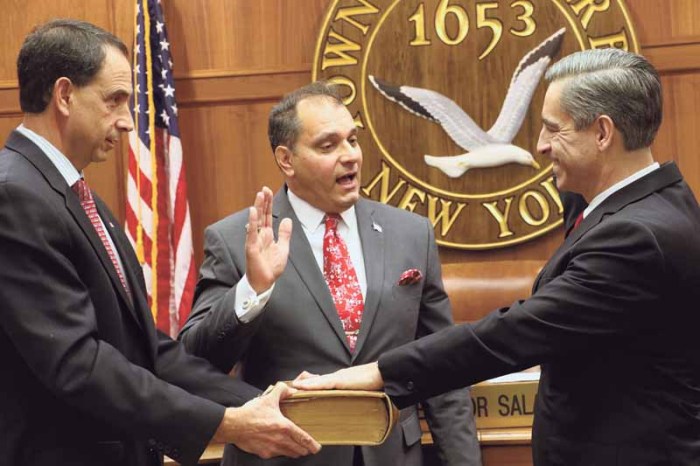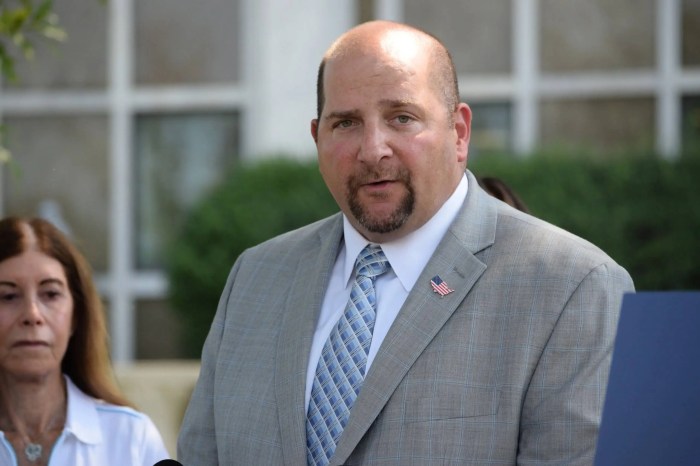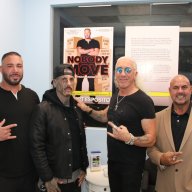Barrett Brown, a Texas-based journalist who was imprisoned by federal authorities following a raid of both his apartment and his mother’s house amid his own investigations into government defense contractors, was released from prison Tuesday, five months before his scheduled release date.
Brown, who pleaded guilty two years ago to three Internet threats, accessory after the fact, and interfering with the execution of a search warrant, had originally been charged with more than a dozen crimes and faced more than 100 years in prison. A majority of the charges were dropped after his lawyers challenged the wisdom of the allegations in court.
The accusations that concerned press freedom and Internet advocacy groups most were those regarding his sharing of a publicly available link containing hacked material and thousands of credit-card account numbers related to the hack of Stratfor, a global intelligence firm.
Investigators say that the data breach was carried out by the hacking collective Anonymous. Brown had an often-contentious relationship with the group yet he was nonetheless regarded falsely as their spokesperson. Although Brown had no involvement in the hack, the court ordered that he also pay nearly $900,000 in restitution to Stratfor when he was sentenced last year to 63 months in prison.
The Press reached out to an advocate of Brown’s for a statement but one was not available as of press time.
Back on the outside for the first time in 4 years, Barrett enjoys an Egg McMuffin. #FreeBB pic.twitter.com/bLbX21ZcTJ
— Free Barrett Brown (@FreeBarrett_) November 29, 2016
Jailed since 2012 for his investigations, #BarrettBrown has finally been released from prison. Best of luck in this very different world. pic.twitter.com/i94lhEUtR5
— Edward Snowden (@Snowden) November 29, 2016
Fantastic news. Welcome back! Can’t way to see more of your journalism. https://t.co/wIwX7YbH8a
— Glenn Greenwald (@ggreenwald) November 29, 2016
Brown’s arrest and subsequent imprisonment appalled free speech groups around the world who expressed concern about a potential chilling effect his prosecution had on investigative journalism. That the federal government would prosecute a journalist over a hyperlink outraged sympathetic journalists and advocates. Global nonprofit group, Reporters without Borders, cited the hyperlink-related charge in its 2014 report on press freedoms, which, along with the Obama administration’s unprecedented prosecution of whistleblowers, contributed to the United State dropping 14 spots in the organization’s annual Press Freedom Index.
READ: Barrett Brown: American Journalist, Whistleblower & Prisoner
The headline on the late New York Times media critic David Carr’s Sept. 8, 2013 column about Brown’s plight underscored the nervousness among some journalists: “A Journalist-Agitator Facing Prison Over a Link.”
Prior to his legal troubles, Brown had been a prolific writer and author. His work ranged from investigative journalism and satire, earning him a tremendous following. Brown’s writing appeared in outlets including The Guardian, Vanity Fair and The Huffington Post. Most recently, he’s penned award-winning commentary for D Magazine and the investigative outlet, The Intercept.
Brown’s writing career began with blurbs about bars and restaurants for a local alternative-weekly, along with satire columns. But his curiosity beckoned him, and he began scrutinizing the relationship between the U.S. government and private contractors.
In 2010, he created Project PM, a site he’d use to crowd-source leaked documents like those from Stratfor.
Some of the documents reportedly shed light on Stratfor’s inner workings, including revelations that it provided confidential intelligence to corporations and government agencies.
Among those disclosures that Brown and others had uncovered was a plot by a consortium of intelligence contractors, collectively dubbed Team Themis, to discredit whistleblower site WikiLeaks and journalists such as Pulitzer Prize-winner Glenn Greenwald.
Brown’s research also brought to light mass surveillance conducted by government contractors on behalf of the U.S. government.
“Unprecedented surveillance capabilities are being produced by an industry that works in secret on applications that are nonetheless funded by the American public–and which in some cases are used against that very same public,” Brown wrote on his site in June 2011.
READ: Revolution’s Family Tree: Franklin and Adams to Manning and Snowden
Federal investigators raided both Brown’s apartment and his mother’s home in 2012 armed with a search warrant looking for “evidence, contraband, fruits, and instrumentalities of criminal violations,” according to the search warrant obtained by the late BuzzFeed/Rolling Stone muckraker Michael Hastings. FBI agents were seeking recordings from government contractors, including HB Gary, Infragard, and Endgame Systems, as well as information related to Anonymous, the hacking group Lulzec, and pastebin.com, among other Internet entities. They were also looking for any computers or hard drives containing the aforementioned material.
Federal authorities in Dallas did not arrest Brown until six months after they executed their search warrant.
Over that time, Brown lashed out in a series of profanity-laced YouTube videos in which he threatened an FBI agent. The portion of his outburst related to the threat charge as part of his guilty plea included claims from Brown that he was armed and would regard government agents as Mexican cartel assassins.
“Any armed officials of the U.S. government, particularly the FBI, will be regarded as potential [Los] Zeta assassin squads and as the FBI and DPD know…I’m armed and I come from a military family, that I was taught to shoot by a Vietnam vet and by my father, a master hunter of all things…I will shoot all of them and kill them if they come and do anything because they are engaged in a criminal conspiracy and I have reason to fear for my life, not just from the Zetas but from the U.S. government,” Brown said.
He added: “And frankly, it was pretty obvious that I was going to be dead before I was 40 or so, so I wouldn’t mind going out with two FBI sidearms like a fucking Egyptian pharaoh. Adios.”
In court, Brown also admitted to concealing two laptops during the raids that contained his journalistic research.
Brown and his attorneys had been prohibited during the period leading up to his trial to speak with the media because of a court-induced gag order instigated by prosecutors.
READ: NDAA, Indefinite Detention, And The Battle Raging Against The Most Important Law You’ve Never Heard Of
In an interview in the Press following his guilty plea, Brown’s attorney at the time said his client was “remorseful” and intended to continue his journalism.
Brown’s most recent essay on behalf of The Intercept was published last month, in which he says, “I am fully capable of entertaining myself in prison for decades if needed.”
Brown will reportedly live in a halfway house following his release. As mandated by the court last year, Brown will participate in a drug and alcohol program and will periodically have his computer activity monitored.
Also on Tuesday, WikiLeaks unveiled a searchable database for 60,000 emails related to HB Gary, one of the contractors that Brown had been investigating prior to his arrest.





























